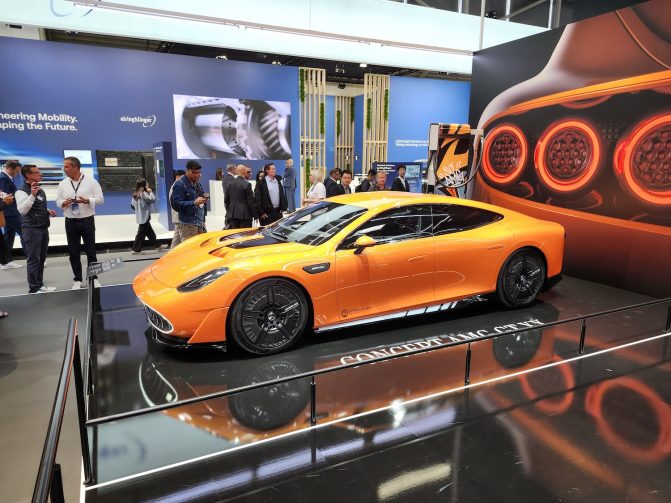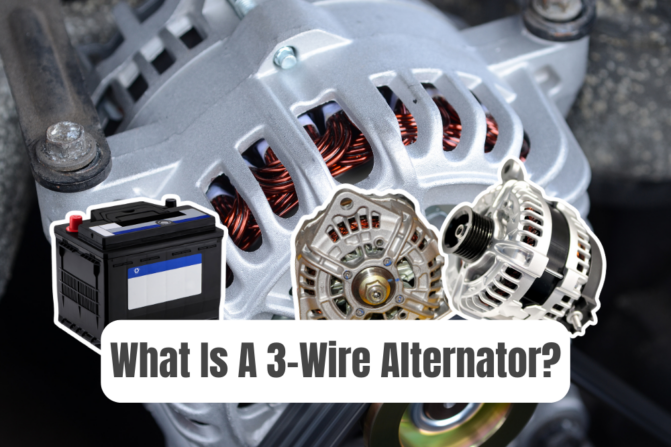When it comes to sensing the next big shift in the world of motoring, few events pull global attention quite like the IAA Mobility 2025 in Munich. While many of the unveiled vehicles are futuristic concepts—think bold prototypes, experimental technology, and even vehicles that look ready for a Nollywood sci-fi scene—these exhibitions give a real sense of what could be parked on Lagos or Accra streets in just a few years. Every so often, amidst the wild designs, you’ll catch a model or an innovation that’s only a step away from production, hinting at trends that could soon shape everything from public transport in Abuja to the private driveways of Accra’s East Legon. Here’s a look at some of the most noteworthy developments from this year’s IAA Mobility event and what they could mean for drivers across West Africa.
Fresh Power from Asia: The Growing Influence of Chinese Automakers
One of the strongest themes at IAA Mobility 2025 is the assertive push by China’s new and ambitious car manufacturers. Recent years have seen names like AITO—who are plotting a bold move into luxury territory once thought exclusive to brands such as Mercedes, Lexus, and BMW—make significant noise globally. However, AITO is just one member of a rapidly expanding field. Walking through the halls in Munich, there’s a palpable excitement at nearly every booth run by Chinese brands, including several that most Nigerians and Ghanaians may not yet recognise.
Take Leapmotor, for instance. Backed in part by Stellantis, this brand is already displaying affordable electric cars, underlining China’s strategic intent to offer accessible, all-electric models for global markets—including the Nigerian and West African middle class, many of whom aspire to leap from fuel-guzzling tokunbo cars to sleek, tech-savvy EVs.
Another attention-grabber is AVATR, a collaboration between the battery giant CATL and China’s automotive heavyweight Changan. Their showcase includes sporty, high-end electric vehicles, highlighting a shift from quantity to quality in the Chinese auto sector. Meanwhile, XPeng—still largely unknown in Africa—drew large crowds with its striking new SUV and the second-generation P7 luxury electric saloon, each packed with the kind of digital bells and whistles suited for the increasingly tech-dependent lifestyle of urban African youths.
According to reports from the show, XPeng was ranked among fan favourites at IAA Mobility 2025. Another rising name, Smart, has been reinvigorated by new Chinese ownership, carving out its own space with compact city cars ideal for the busy streets of Lagos or Kumasi. Alongside these heavyweights, lesser-known brands like GAC drew smaller but curious crowds, notably with their AION sub-brand—introducing compact EVs that would be perfectly suited for local rideshare operations, school runs, or business commutes from Surulere to Ikeja.
Competition Heats Up: Europe’s Response to the Asian Challenge
The influx of Chinese models isn’t escaping the attention of established European brands. In what many industry experts see as the beginning of a new kind of “auto rivalry,” classic names like Volvo, Mercedes, BMW, and Volkswagen are fighting to maintain their relevance by embracing electrification and, in some cases, hydrogen power.
Volvo’s stand, for example, was built around the new EX30 Cross Country—an electric SUV tailored for adventurous lifestyles and tough terrains. This model could resonate with Nigerian families needing a robust, eco-friendly vehicle for both the mainland hustle and rural family visits. The ES90—a highly anticipated all-electric saloon—underscored Volvo’s determination to stay ahead in the race to electrify African and global roads.
On home ground, German powerhouses are determined not to be outdone. Mercedes-Benz took over a significant footprint at the event, debuting the stylish CLA Shooting Brake and the vibrant CONCEPT AMG GT XX—impressive both in technology and their assertion that Germany isn’t ready to let go of its crown just yet.
BMW, no stranger to innovation, arguably stole some of the limelight. Its new M5 Touring turned heads with its bold colours and powerful stance, even as online communities remained split over BMW’s trending design language. The all-electric iX3 made its debut, representing the “Neue Klasse” philosophy—which may soon define the look and feel of future BMWs, potentially making their way into luxury African car imports.
A particularly notable point for enthusiasts here is BMW’s conviction that hydrogen could be the fuel of tomorrow. With fuel prices and supply reliability still a burning local issue in Nigeria and across West Africa, hydrogen-powered cars might seem like a pipe dream today. However, as BMW and others continue their research (and Africa’s energy landscape evolves), alternative power may one day have a vital local role.
Electrification Goes Mass-Market: Making EVs Affordable
The biggest question on many people’s minds is: Will these high-tech models actually be affordable for the average African buyer? Volkswagen attempted to answer this with the unveiling of the VW ID Cross Concept, designed to preview its next step toward making electric SUVs accessible. The brand also showcased the VW ID EVERY1 Concept, their vision for a truly entry-level EV. Given the high demand for affordable, efficient vehicles in growing African cities—where budget and durability matter—such developments are closely watched by local auto dealers and policymakers alike.
Unexpected entries like Opel also made a statement. Although mostly out of mind for many in the region, Opel was keen to impress with the rally-inspired Mokka GSE electric SUV, now orderable. Local car enthusiasts may remember the Frontera label—once a rebadged Isuzu, now reborn as a homegrown, compact crossover that aims to appeal to value-seeking families and first-time car owners in Nigeria and Ghana alike. And for gamers or dreamers, the Opel Corsa GSE Vision Gran Turismo—though limited to the digital tracks of Gran Turismo 7—shows the playful, forward-thinking spirit of today’s auto industry.
Relevance for Nigeria, Ghana, and West Africa: Is the Future Near?
While many of the showcased vehicles and innovations may seem distant to day-to-day Lagos commuters or Accra taxi drivers, IAA Mobility 2025 actually offers a window into trends that will shape Africa’s transport system. The West African environment has unique requirements: affordable cars rugged enough to handle bad roads, high fuel costs, and an often unreliable power supply. There are some signs that manufacturers recognize these challenges. From robust entry-level electric SUVs to compact city cars, the industry seems to be inching toward solutions that could fit the needs of young urban professionals, ride-hailing drivers, and even fleets for commercial and logistics businesses.
Policy reforms—such as new Nigerian EV regulations, import incentives, or cleaner energy projects—could soon make it easier for these technologies to reach local buyers. As importers and local assemblers begin to look at EVs more seriously, these global innovations could find their way not just into exclusive showrooms but into the mainstream, impacting everything from okada alternatives to mass transit projects in places like Ibadan or Abuja.
Challenges to Adoption: Power, Pricing, and Local Customisation
Despite the promise, many questions remain. Can the cost of new EVs be brought down enough for middle-class Nigerians or Ghanaians? Will manufacturers design cars tough enough for African road conditions? And without consistent grid electricity, how will widespread EV adoption take root? Reports from the IAA hint that global manufacturers are more open to local partnerships, adaptation, and gradual rollouts—possibly bringing regional input into their next generations of vehicles.
The rise of Chinese automakers may also force established companies to improve aftersales service, invest in local training, and diversify payment options—changes that would benefit consumers across the continent. With ride-hailing and delivery businesses relying heavily on affordable mobility, the race to offer reliable, durable, and economical vehicles is also a race for the future of work and commerce here in West Africa.
Looking Ahead: Local Reactions and Global Perspectives
Auto enthusiasts, policymakers, and entrepreneurs in Nigeria and Ghana are watching closely, seeking ways to turn these innovations into everyday reality. According to Lagos-based mobility analyst, Chidi Okeke, “What we are seeing at IAA Mobility is not far-fetched for Africa. The real opportunity is for government agencies and private sector actors to pilot locally relevant solutions—whether that means affordable city EVs, utility-focused vans, or even flexible hydrogen systems.”
Industry insiders are optimistic but cautious. Bringing the latest cars and clean-energy technology to Africa will depend on creative public-private partnerships, government incentives, and a willingness to pilot new ideas in tough conditions. Already, there are small-scale projects bringing solar-powered EV stations to Nigerian cities, and local startups are exploring ways to retrofit existing minibuses with electric engines. If such early moves succeed, some of the innovations featured in Munich this year could be adapted and assembled locally, supporting jobs while modernising the sector.
In the coming years, the car you see in Munich could be the one humming past your street in Lagos, Accra, or Cotonou—if not as a brand-new import, then as an inspiration driving local makers to new heights. With more Africans plugged into global trends, the future of mobility is set to be truly pan-African, mixing the best of the world with our distinctive flair and requirements.
What do you think—Are West Africans ready for a tidal wave of electric and next-gen vehicles, or will our unique realities demand a different path? Share your perspective and join the conversation below!
Want to get your car story or automotive experience featured? We’re looking for local voices, transport tips, and owners’ reviews from Nigeria, Ghana, and across West Africa. Share or sell your story—simply email story@nowahalazone.com.
Need support or have general questions? Reach out to us at support@nowahalazone.com.
Join our auto-loving community—drop your views in the comments and follow us for more updates on the latest cars, transport trends, and gadget reviews!
Connect with us on Facebook, X (Twitter), and Instagram for real-time stories, updates, and exclusive content.










